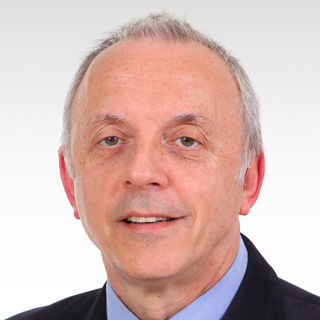Sepsis occurs when the body’s immune system responds to an infection and injures its own tissues and organs. It is a medical emergency, requiring early detection and treatment as it can lead to septic shock, multi-organ failure, and death. One in five deaths worldwide is associated with sepsis and 40% of cases are in children under five years of age. Sepsis is the number one cause of death in hospitals, the number one cause of hospital readmissions, and the number one healthcare cost.
Laboratory testing is essential in helping prevent, detect, and treat sepsis to minimize injury to the body and the risk of death.
This educational podcast activity is brought to you by Ortho Clinical Diagnostics, Inc., and is not certified for continuing medical education. Ortho Clinical Diagnostics, Inc. sponsors the program, and the speaker must present information following applicable FDA requirements.
About our Speaker:

About our Speaker:
Dr. Lui Forni
Dr. Lui Forni is a Professor and Consultant Nephrologist and Intensivist at Royal Surrey County Hospital NHS Foundation Trust in Guildford, England. Professor Forni earned a PhD in physical chemistry and subsequently studied medicine, specializing in nephrology and intensive care medicine. His research interests include pre-operative assessment of high-risk surgical candidates, renal replacement therapy, diagnosis, pathophysiology and treatment of acute kidney injury and predictive modeling in acute medical admissions. He lectures both nationally and internationally and has published widely. He served as the Past Research Chair and is the Current Secretary of the European Society of Intensive Care Medicine.
Dr. Lui Forni is a Professor and Consultant Nephrologist and Intensivist at Royal Surrey County Hospital NHS Foundation Trust in Guildford, England. Professor Forni earned a PhD in physical chemistry and subsequently studied medicine, specializing in nephrology and intensive care medicine. His research interests include pre-operative assessment of high-risk surgical candidates, renal replacement therapy, diagnosis, pathophysiology and treatment of acute kidney injury and predictive modeling in acute medical admissions. He lectures both nationally and internationally and has published widely. He served as the Past Research Chair and is the Current Secretary of the European Society of Intensive Care Medicine.




